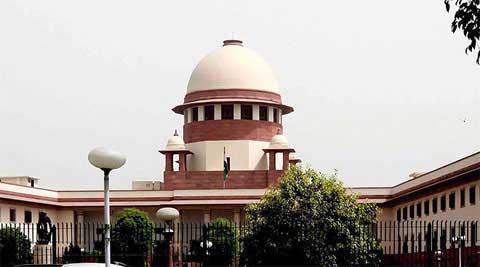 Menu
MenuThe court, however, upheld the constitutional validity of the social welfare legislation enacted with Constitutional amendments.
Written by Utkarsh Anand | New Delhi | Updated: May 6, 2014 1:18 pm
 Under the law, a statement recorded by the police is inadmissible with no legal sanctity. This new procedure, the court said, would put an end to repeated recording of the statement — “the primary reason for delay of the trial”.
Under the law, a statement recorded by the police is inadmissible with no legal sanctity. This new procedure, the court said, would put an end to repeated recording of the statement — “the primary reason for delay of the trial”.
The Supreme Court on Tuesday ruled that minority institutions were outside the ambit of the Right To Education (RTE) Act and they cannot be hence obligated to reserve 25 per cent seats for students from socially and economically weaker sections of the society.
The court, however, upheld the constitutional validity of the social welfare legislation enacted with Constitutional amendments which places an obligation on unaided private schools to reserve 25 per cent seats for such wards.
A constitution bench led by Chief Justice R M Lodha upheld the validity of Articles 15(5) and 21A, by virtue of which unaided private schools are also obligated to reserve 25 per cent seats for students from weaker sections. It, however, clarified that minority institutions could not be asked to do so since the Act did not operate on them in this respect.
The bunch of petitions by the Karnataka-based institutions have contended that a three-judge bench ruling on the validity of the RTE Act did not deal with the constitutional validity of these provisions in its April 2012 verdict.
In 2012 verdict, a three-judge Bench, by a 2:1 majority verdict, had shot down a challenge to the validity of the RTE, consequently obligating private unaided schools to reserve seats.
The dissenting judgement by Justice K S Radhakrishnan however had held that the mandate under the RTE Act providing for reservation of seats was not constitutionally valid, and thus the unaided schools, whether majority or minority, could not be compelled to earmark 25 per cent seats in their institutions.
He said that such quota in respect of the unaided non-minority and minority institutions, and held that it can be given effect to “only on the principles of voluntariness, autonomy and consensus and not on compulsion or threat of non-recognition or non-affiliation.”
Later, appearing for Pramati Educational and Cultural Trust and others, advocate Mukul Rohatgi had also referred to an order of SC on September 6, 2010 whereby the issue was referred for adjudication to a five-judge Constitution Bench.
“Therefore the three-judge Bench heard other issues and did not adjudicate at all on validity of Articles 15(5) and 21A. It was never argued upon if these are violative of the basic structure of the Constitution. Can you put an obligation on private unaided schools by application of these provisions? It remains to be decided,” Rohatgi had argued, following which the issue was referred to the constitution bench.
http://indianexpress.com/article/india/india-others/25-pc-reservation-for-minority-institutions-invalid-under-rte-act-sc/